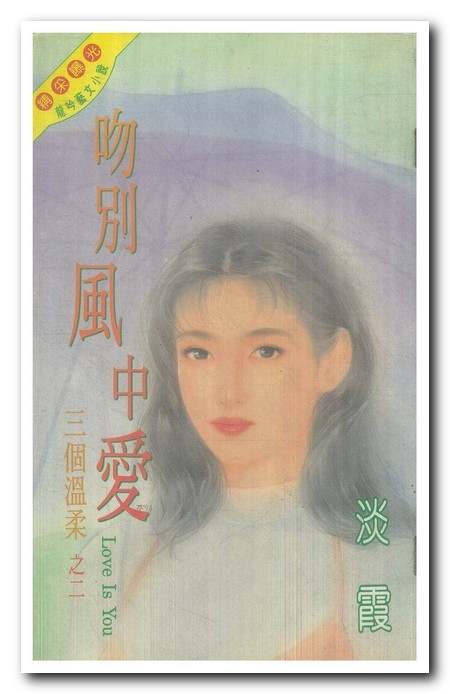the days of my life-第59章
按键盘上方向键 ← 或 → 可快速上下翻页,按键盘上的 Enter 键可回到本书目录页,按键盘上方向键 ↑ 可回到本页顶部!
————未阅读完?加入书签已便下次继续阅读!
uggage on the Italian railways; causing us to proceed to Cyprus with practically nothing but the clothes in which we stood; and sent it home from that romantic isle packed in the remains of a mule…saddle; or something of the sort。
After this there was for a year or two a certain coolness between me and The Times; which had never received the promised articles; for of course I was unable to explain the real reason of my delinquencies。 However; my affectionate nephew enjoyed himself enormously; both in Cyprus and the Holy Land; whither I had taken him because I understood that he intended to enter the Church。 As we sailed from Limasol for Beyrout he said; in a hushed voice; that he had something to tell me。
“Speak up;” I answered; wondering; with an inward groan; whether he had engaged himself in marriage to the barmaid of the Nicosia Club。
It turned out; however; that what he had to confide was that he had changed his views about entering the Church; and up to this point had concealed the matter for fear lest I should refuse to take him on to the Holy Land; but spoke now; perhaps because he did not wish to make the visit sailing under false colours。 I reflected to myself that this bouleversement would be attributed to my evil influence; but said nothing。 It all came right in the end; as such things do; and I am bound to add that; although he did not shine as a secretary; a trade for which Nature never fashioned him; this dear nephew of mine was perhaps the pleasantest panion with whom I ever travelled。
In the intervals of getting him up in the morning and generally attending to his wants and my own; I managed to make some notes; out of y book; “A Winter Pilgrimage。”
The Holy Land impressed me enormously; although it is the fashion of many travellers to say that there they find nothing but disappointment。 But of all these matters I have written in the “Winter Pilgrimage;” so I will say no more about them。
By the way; this “Winter Pilgrimage” is; I think; unique in one respect: the first half of it was published serially after the last had already appeared。 The managers of the Queen newspaper; who had agreed to bring out all the portions of the book which dealt with the Holy Land in this form; found the instalments so popular among their readers that they asked to be allowed to print the remainder; which dealt with Italy and Cyprus。
Before I pass to the subject of “Rural England” I will dwell for a moment upon my only novel with a purpose; which appeared about a year previous to my journeyings in the Near East。 It is called “Doctor Therne;” and deals with the matter of the Anti…Vaccination craze — not; it may be thought; a very promising topic for romance。 I was led to treat of it; however; by the dreadful things I had seen and knew of the ravages of smallpox in Mexico and elsewhere; and the fear; not yet realised; that they should repeat themselves in this country。 It was a dangerous move。 Said the Lancet:
In conclusion we must mend Mr。 Haggard’s courage in thus entering the lists against the Anti…Vaccination party。 As a novelist and a politician alike it is evidently to his advantage to take no step that would be likely to alienate him from any large body of possible supporters。 Yet he has risked losing many readers and creating a fanatical opposition to whatever he may do in a public or private capacity for the sake of telling the truth。
Although so different in matter and manner from my other works; this tale has been widely read; and will in due course appear in one of those sevenpenny editions which have bee so popular of recent years。 I dedicated it (without permission) to the Jenner Society。 The Executive mittee of this society on December 22; 1898; passed a warm and unanimous resolution thanking me for the work。
Of “Rural England;” the heaviest labour of all my laborious life; there is really not very much to say。 There it is。 I shall never forget the remark of my daughter Dolly; a young lady with a turn for humour; when these two great volumes — they contain as many words as would fill five novels — arrived from Messrs。 Longmans and; portly; blue and beautiful; stood before us on the table。 “My word; Dad!” she said; “if I had written a book like that; I should spend the rest of my life sitting to stare at it!”
I confess that before all was finished I was inclined to share in this opinion。 What a toil was that! First there were the long journeys; one of them took eight months without a break; though; happily; that summer was very different from this more disastrous year of cold and floods; 1912。 Then there were the articles for the Daily Express and Yorkshire Post; which must be pleted in my spare time; sometimes at midnight; of which I wrote more than fifty。
I do not think I could have pleted the task at all without the assistance of my friend Mr。 Arthur Cochrane; who took the notes while I did the talking; and also helped very much in the preparation of the series of agricultural maps。 These maps; I regret to say; it was found impossible to include in the cheaper edition because of the cost of reproducing them。
But making the investigations was not all。 After these came the writing of the work itself; whereof the articles only formed the foundation。 This occupied the best part of another year of most incessant and careful application; for here every fact must be checked。 It was the very antithesis to that involved in the position of novels; where the imagination has free play。 Here I may add that of the recorded results of these hundreds of interviews and statements made upon the individual authority of the persons seen; or from observation of the matters investigated; not one wrong。 The manager of the Great Eastern Railway took exception to some of the carriage rates quoted by an informant; for which I was not responsible。 Also one gentleman who had invited me to inspect his farm spoke of “minor inaccuracies and blemishes” in the account I gave thereof。 In nearly twelve hundred closely printed pages that; I am proud to say; is all。
The work was well received; although of course there were those who found fault。 Everyone has his own ideas as to how such a thing should be done; though those who try to do it are few indeed。 I too had my idea; which was to arrive at the truth out of the mouths of many witnesses。 I desired to set down the facts as they were at the beginning of the twentieth century; not as they had been in the past or would possibly be in the future; or as people with various theories and political views would like to see them。 I wished to preserve a large body of incontestable evidence for the benefit of future generations。 Since that day things; I am glad to say; have changed a little — not very much — for the better; and if I were to undertake such a task afresh — which Heaven forbid! — I might write otherwise on certain points。 But I tried to draw a picture of our agriculture and rural conditions in the twenty…seven counties that; with the Channel Islands; I visited; which should be true and faithful to the circumstances of the time。
Some; of course; were angry with me because I did not advocate Protection as a remedy。 Others of a different school were angry because I pointed out that Free Trade had wrought enormous damage to British agriculture; and that this same Protection; if it could be established; would go far to repair that damage。 As a matter of fact; I began my travels a believer in Protection。 By the time I had finished them; rightly or wrongly I came to the conclusion that it was not feasible in England — a view which; during the last ten years or so that have elapsed since the publication of “Rural England;” little has happened to controvert。 Indeed; I still hold that Protection; or Tariff Reform; which is so widely advocated by the followers of Mr。 Chamberlain; is a heavy stone tied round the neck of the Unionist dog; and one which it will find makes swimming difficult in our political waters。
I elaborated these views in a speech I made some months after I published “Rural England” at the Framlingham Farmers’ Club; which speech has often been quoted since that time; when; it will be remembered; Mr。 Chamberlain’s proposals were very much before the country。
Well; Mr。 Chamberlain’s trumpet; which has been echoing through the land for the last ten years; has not yet shaken down the Free Trade walls; though it is possible that by the time these lines are read it may have done so。 I cannot tell; nobody can tell except the Great Disposer of events。 I can only put things as I see them。 At any rate the point that I believe I was the first to place before the public in the above speech; although others took it up soon afterwards; is sound and clear。 I can see no escape from the conclusion that; if food…stuffs are to be admitted to our markets practically free; while other imports are taxed; our agriculture must suffer to a terrible extent。 The same thing applies; if in a less degree; to the admission of food…stuffs without impost from the constituent parts of the British Empire。 It would make little difference to the British farmer; in these circumstances; whether the corn or the meat came in free from India and Canada or from Russia and the Argentine; if at the same time he had to pay more for his implements; his clothing; and every other article of daily life; and; as a consequence; a higher rate of wages; while he only realised the old low prices for what he had to sell。 For; be it remembered; the British manufacturer peting with the foreign…made articles would certainly raise the cost of his output till it equalled; or almost equalled; the price at which such foreign articles could be profitably sold to the British consumer。
At first my hopes of any tangible result of my labours were bitterly disappointed。 Thus; when in January 1906; a little over three years later; I wrote a preface to a new edition of “Rural England;” I find myself saying:
I wish I could add that I was able to point to any tangible fruits of its publication。 This; however; I cannot do。 Personally; I have made every effort to bring the reforms urged in its pages to the benevolent notice of those in authority。 At some private cost I have inflicted upon them copies of these expensive volumes and been favoured in return with polite notes of thanks。 I have interviewed certain of them who wished to receive me。 I have neglected other work in order to travel up and down the country addressing every kind of meeting and explaining my views; in short; of would…be agricultural reformers; I may say almost; that I have “laboured more abundantly than they all。” Now after four years are gone by I must with humiliation report that nothing of any consequence has happened。
It is true that at one time I hoped that the great extension of parcel post privileges which; under the title of an Agricultural Post; I urged so earnestly in the interests of small holders; would pass into the region of acplished fact。 In February 1903 I wrote a letter on this subject to Mr。 Hanbury; and I give an extract from his answer:
House of mons: February 18; 1903。
Dear Mr。 Haggard; — I should have answered some days — or weeks — ago; but I have been in munication with the P。M。G。; Henniker Heaton; and others on the subject you have done so much to bring to the front。 So far from opposing the principle of your suggestion I am heartily in favour of it; and I am doing what I can to see it carried into practice。 My criticisms are criticisms of detail。 I do not think the scheme can be limited to agriculture or even to rural districts。 It must apply all round。 Nor is it practicable to pete for long distances with the Railway panies。 The coaches of the P。O。 run to distances of 50 miles round London; and at present it costs the P。O。 less to send parcels by that way than by rail。 But the arrangement with the Railway panies as to parcels expires very shortly now; and it remains to be seen whether they cannot be made to carry them very much cheaper in the future。 The weak point of the P。O。 service as regards the country districts is that it distributes the parcels sent from the towns to almost every house free; but does not do so much for collection as it does for distribution。 The result is that the flow of traffic is all in one direction。 A farm…house or cottage a mile or a mile and a half from a P。O。 can readily receive parcels from London; but to despatch one to London involves a walk of a mile or a mile and a half。
So again the limit of 11 lbs。 is satisfactory to a town producer or a tradesman; but it is not at all what the small farmer wants。
Knowing how keen your interest in these questions is and what good you have done already; I hope we shall be able to work side by side on this and many other points。
Yours sincerely;
R。 W。 Hanbury。
Of my answer there is a copy extant; from which I quote:
Ditching House; Norfolk:
February 19; 1903。
Dear Mr。 Hanbury; — It is with great pleasure that I have read your kind letter and learn from it that this Post is really to receive your support。 Under these circumstances (although of course there will be endless difficulties and obstacles to overe) I see no reason why it should not pass into the realm of acplished fact。 If so I am sure that ing generations will bless your name as the Minist





